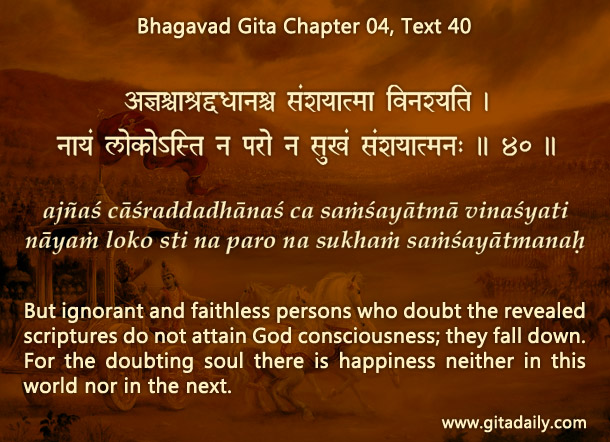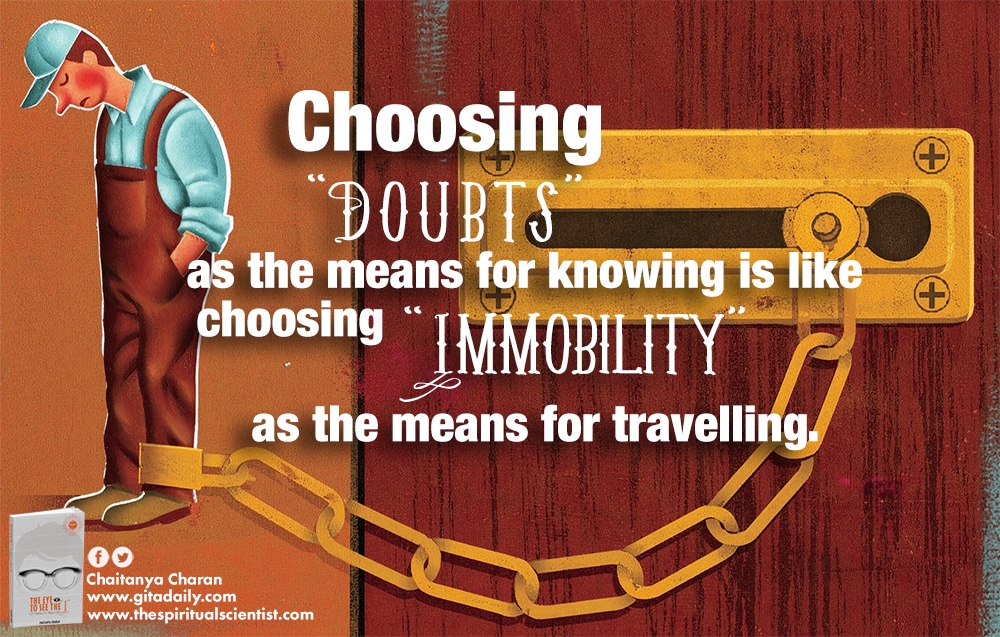Some contemporary intellectuals are proud of their skepticism. They delight in their capacity to doubt and discredit any belief they encounter, even if that belief were based on scripture trusted by spiritual intellectuals far greater than them.
No doubt, doubt is useful in rejecting the incorrect. But it can’t ever show us the correct. For example, while traveling along a road if we come to a fork and undiscerningly choose one lane, doubt can prompt us to ask someone about the right way. But if we made doubt our primary means for knowing, we would have to doubt the information given by that person and in fact, the information given by anyone and everyone. Pure devotion to doubt would paralyze us. If we are to get to our destination, we will need to shed doubt and choose to believe. Of course, we can and should seek a reliable source, but eventually we have to believe.
A similar indispensability of belief applies to our inner journey – the movement of our consciousness towards our essence, the soul, and our source, God. If we remain inveterate doubters, we won’t follow any process for gaining spiritual realization. We would thus sentence ourselves to perpetual ignorance, never knowing who we really are or what we are meant to do in life. We may comfort ourselves that our present situation in life is ok, so we don’t need to explore spiritually. But that pseudo-security will be stripped away by the one indubitable reality towards which we slide inexorably with each moment – death. The Bhagavad-gita (04.40) warns that doubters deprive themselves of lasting happiness both in this life and the next.
By redirecting our focus from doubting all belief to determining the right belief, we can attain fulfilling knowledge

Explanation of article:
Podcast:



Hare Krishna!!
Nice explanation Prabhuji!! If one reads the scriptures and the guidelines of it, he may never be doubted. The thing which tends to become doubtful is that they never read it completely with full faith. Superficial knowledge acquired without belief is always misleading.
Thanks.
what is the difference between doubt and curiosity?
Answered here:
http://www.thespiritualscientist.com/2015/04/what-is-the-difference-between-doubt-and-curiosity/
ys
ccdas